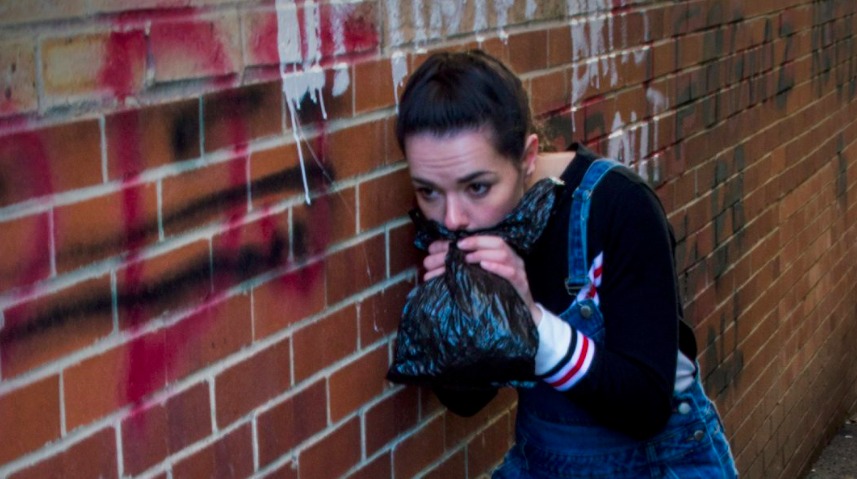Through a clever dual narrative Kat Woods’ powerful play, KillyMuck, tells a story both of her own experiences growing up on a housing estate in Northern Ireland in the 1970’s and of the battle the ‘underclass’ continue to have to achieve equality, or more appropriately, equity, in the UK today.
When the house lights are up actress, Aoife Lennon, presents a social commentary of the problems faced by the poorest in society. Her character doesn’t see the point in French at school, for example. It is not a place she ever envisages travelling too and although school trips are on offer from the school she will never be able to afford to go. This supports a damaging self-fulfilling prophecy which is replicated in many of the poorest communities up-and-down the country.
When the house lights go down Lennon becomes Niamh, a young girl navigating her way through a difficult world of alcoholism, poverty and class barriers, but all with a sense of humour which shines through the bleak backdrop of “the estate”. There are amusing anecdotes interspersed with more serious real-life issues such as the Protestant/Catholic divide, the Eniskillen bombing and suicide, the numbers of which are currently higher in Northern Ireland than in any other parts of the UK.
The script is fast-paced and full of wit and vitriol in equal measure about the circumstances faced by “the benefit bastards from the estate” and Lennon does an excellent job at handling it, both when acting out events from Niamh’s life and when returing to the microphone to give the audience lessons in where society is going wrong.
The show finishes with a powerful image showing the difference between equality and equity, the narrator encouraging people to view equity as the way to equality if life is ever going to improve for those in the ‘underclass’. What began as a humorous retelling of a young girl’s story ends as a thought-provoking, serious reflection on the vicious cycle of poverty and how difficult it can be to break said cycle.
